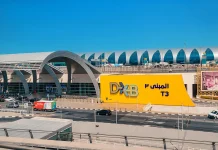The economies of the Middle East are likely to experience a W-shaped recovery, according to the multi-lateral lender
Planned and committed energy investments in the Middle East are likely to decline 21.8 per cent over the next five years, as a result of the Covid-19 pandemic, lower oil prices and demand as well as a looming financing crisis, according to the Arab Petroleum Investments Corporation.
The multilateral investment bank slashed its five-year outlook to $792 billion from a previous five-year estimate of $965bn.
However, the GCC, which accounts for much of oil production and export in the Middle East and North Africa saw a 2.3 per cent increase in committed investments, compared with 6 per cent for the region as a whole. The increase indicated a higher project execution in the Gulf economies, according to Apicorp.
The economies of the Middle East are likely to experience a W-shaped recovery, characterised by a rapid recovery, followed by a second period of recession, according to the bank’s chief executive Ahmed Ali Attiga.
“The impact of Covid-19 is already deeper and longer lasting than past downturns. Indeed, the nature of this triple crisis and the profound restructuring in oil and gas will hit energy investments for a potentially long period of time, sowing the seeds of supply crunches and price volatility,” he said.
Investment in gas will pick-up over the five year period, as Opec producers in the Middle East cut back on oil production to comply with the group’s output curbs. Gulf producers such as Saudi Arabia and the UAE are also prioritising development of their gas reservoirs to meet growing power demands as well as for export purposes in the future.
“The gas value chain registered the highest increase in planned investments compared to the 2019 outlook at $28bn, or 13 per cent, [following the development] of unconventional gas, namely Jafura, Hail & Ghasha in the GCC, and increasing production capacity in Qatar, Egypt and Oman,” the report said.
The regional power sector meanwhile registered a $114bn decline due to the commissioning of several projects in Egypt, the UAE and Saudi Arabia in 2019.
Saudi Arabia is set to account for $39bn spending in gas investment. The kingdom is also expected to spend up to $41bn in power projects.
Iraq, Opec’s second-largest producer, is likely to see $33bn in investments go into rehabilitating its war-damaged utilities sector.
The UAE, which looks to raise production capacity to 5 million barrels per day by 2030 could drive $45bn in spending into the sector.
In North Africa, Egypt could attract as much as $38bn towards its petrochemicals industry.




